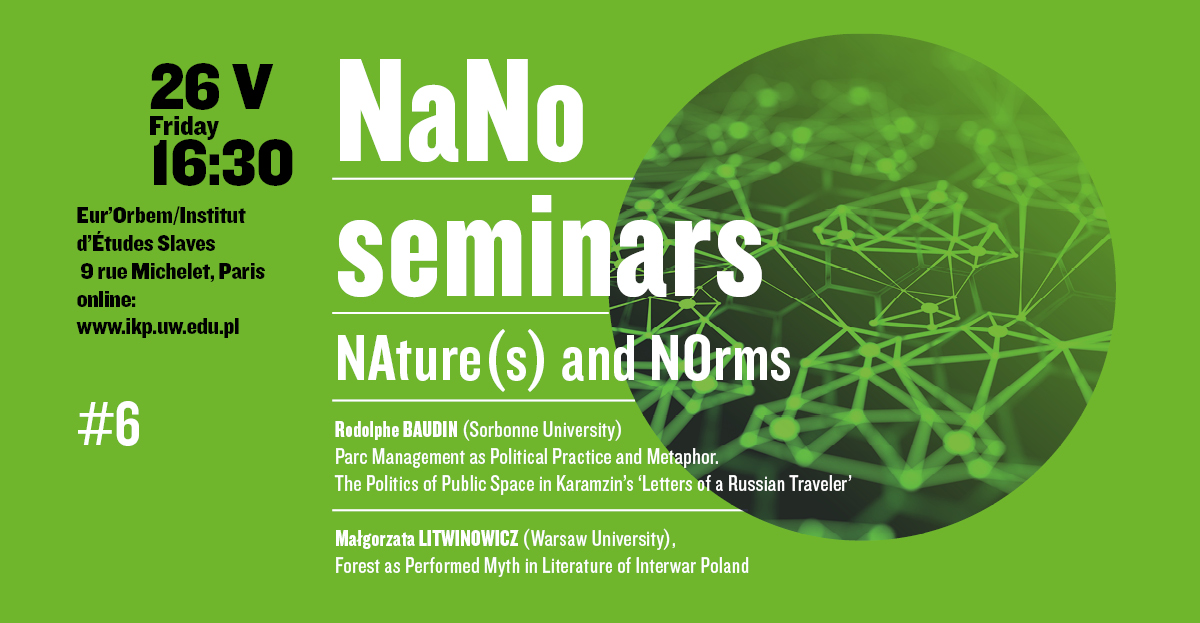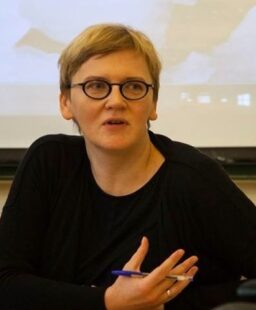Zapraszamy na kolejne seminarium z cyklu Nature(s) and Norms. Tym razem rozmawiać będziemy o zarządzaniu naturą, jej ideologizacji, a także aspekcie afektywnym tego procesu.
Seminarium odbędzie się 26 maja, g. 16.30 na Sorbonie (Eur’Orbem).
Link do udziału online:
https://us02web.zoom.us/j/86161270934?pwd=UUp6Y1g3V2pkWWp4SVNJWEo3WndOdz09
Meeting ID: ID 875 1832 6210
Password: 932326
Wystąpienia:
Rodolphe Baudin (Sorbonne University)
Parc Management as Political Practice and Metaphor. The Politics of Public Space in Karamzin’s “Letters of a Russian Traveler”
While walking around Paris and Versailles in the spring of 1790, Nikolai Karamzin’s Russian Traveller reflects on garden landscaping, improvements made by monarchs or grandees in public parks and popular reactions to these changes. This talk postulates that Karamzin uses the Traveller’s comments on this topic to reflect on the way authorities use parks and gardens to manage public discontent and the way the population oppositely use is it as a space of social Independence to escape disciplining efforts from the top. As a result, this co-management of nature in public space is used as a metaphor for the social contract and its mismanagement by the authorities as a metaphor for the origins of the ongoing French revolution, an event Karamzin reflects on using a nature-based discourse typical for Conservative thinkers in this time.
Małgorzata Litwinowicz (Institute of Polish Culture, University of Warsaw)
Forest as Performed Myth in Literature of Interwar Poland
In my presentation, I will focus on the phenomenon of mythologizing natural spaces, in particular the primeval forest and swamps. They were loaded with various content and engaged for various purposes in interwar Poland: among others, they were to testify to the eternal and natural character of Polishness. These spaces (its images, descriptions or knowledge about it) were used in the service of state propaganda. Referring to this context, I would like to present the writings of Maria Rodziewicz, the most popular Polish writer of the interwar period. Her texts served the propaganda of Polishness, especially in the eastern borderlands and were nationalistically engaged. They were also – like the author herself – queer texts, emphasizing a relationship between human beings and nature other than exploitation, questioning accepted gender roles, proposing a new social order. I would like to focus on these paradoxes and their place in Polish imaginary.

